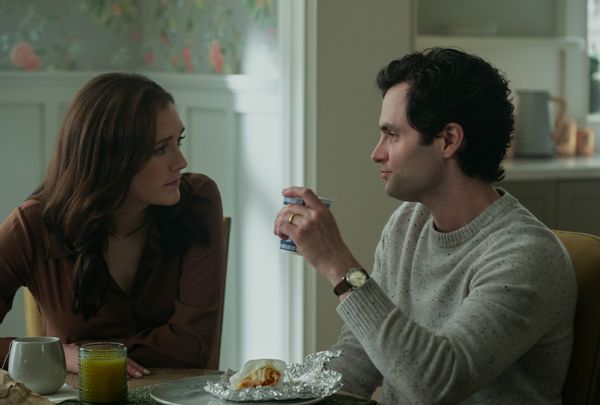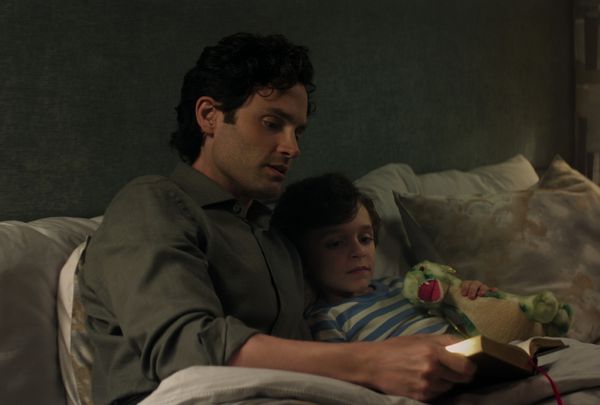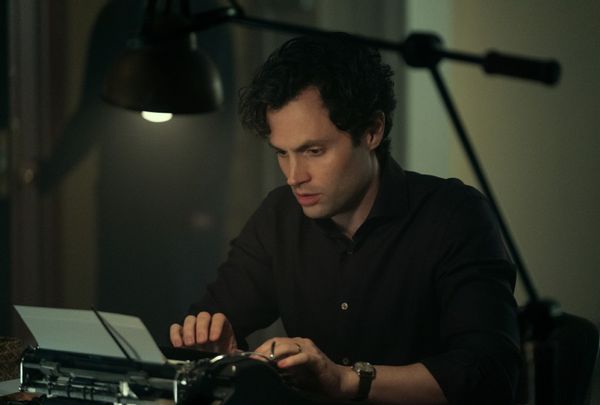
When did you stop rooting for Joe Goldberg? Were you ever rooting for him? Admittedly, "You" — the Netflix series wrapping up with its fifth and final season — was never really in Joe’s corner, with star Penn Badgley firmly reminding fans from day one that Joe was not someone to root for. But still, there’s just something about the guy that keeps viewers coming back for more.
Sure, it’s entertaining to watch a serial killer con and cajole his way through problem after problem — America has a borderline unhealthy fixation on serial killers, after all — but there’s something more about Joe that keeps us tied to his narrative. His running inner monologue endears us to him by ostensibly revealing his vulnerabilities and insecurities to the audience. However, as the show stretched from one season to five, it became clear that Joe was never going to change; his monologue was simply a story he spun for himself so he could continue to indulge in his worst impulses.
When the first season of the show premiered, I initially found value in Joe’s tortured voice. Despite the criticisms of the show’s initial portrayal of women as one-dimensional characters that only served to further Joe’s narrative (an error that the show sought to fix, with varying results, in subsequent seasons), I was taken with the fact that the show gave us a window to feel empathy for what society would otherwise consider to be an irredeemable man. Joe wasn’t Dexter Morgan, trying to sate his violent impulses by targeting people who deserved to die. No. From the moment we met him, Joe Goldberg was a killer, capriciously murdering his way through Guinevere Beck’s entire support system in the name of “love.”

Through Joe’s raw inner monologue, "You" challenged us to empathize with a man fighting a losing battle with his sanity, and confronted the reality of being open and honest with destructive thoughts. Because viewers felt like Joe was attempting to change, they kept giving him chances. (Hi, it’s me. I’m the problem.) As a therapist focusing on treating people with addictions, I felt for Joe, stuck in his maladaptive patterns of destruction, and I initially wondered if the show would allow him to grow as his narrative progressed. In fact, I actively hoped for him to change. Perhaps he’d vocalize his destructive thoughts at some point and seek help? Maybe he’d hit rock bottom somehow and work his way out?
But, alas, rock bottom never really came for Joe until it was too late. Throughout five seasons of love and death, Joe Goldberg has maintained the status quo of his original inner narrative, learning nothing, changing nothing, and lying his butt off to both himself and viewers. Even in the fourth season, where he was ostensibly trying to make a new start as a professor in London, he (and his alternate personality) murdered more people than in the previous two seasons combined. Joe’s mindset is that of a person in the throes of a dependency-level behavioral addiction. He mainlines all of his romantic entanglements as if they were the antidote to his unresolved traumas.
To everyone else in the "You"-niverse, Joe is just a handsome guy looking for a love that will last, but his inner monologue, with all its shades of gray, has painted a different story for viewers over the years. As much as Joe desperately wants to believe that love is the motivator for his actions, he isn’t truly seeking love. Instead, he’s subconsciously repeating the behavioral pattern that upended his life as a child, his lack of introspection and internalized misogyny dooming him to a cycle of pain and suffering for both him and his eventual victims. (Freud would have had a field day with Joe and his mommy issues, am I right?) Joe uses love as a weapon to absolve himself of his own worst impulses. His true addiction is maintaining control. And when he loses control, all bets are off.
Over five seasons of "You," Joe Goldberg has killed scores of people and engaged in deep relationships with six women, two of whom he married. Until the very end, Joe does the same thing, over and over, expecting different results. He indulges in his compulsions to escape from his own discomfort, and consistently blames his actions on his current love interest. That way, he can never be responsible for his own misdeeds. Oh, he poisoned Beck’s boyfriend? Well, Beck really made him do it because Joe just had to keep her safe. Oh, he suffocated Greg Kinnear, er, Tom Lockwood to death? Of course, it was just to help his paramour Kate escape her father’s evil clutches. With Joe always passing the buck to the idealized woman in his mind, nothing he does is ever his fault.

As Brontë confronts Joe at gunpoint in the middle of a steamy encounter, he is caught off guard, literally with his pants down. Yet, even as he stares down the barrel of a gun, he harbors the delusional hope that he can puppeteer this relationship back to life. Joe’s inner monologue pipes up, excitedly stating, “In the canon of epic romances, bouncing back from a gunpoint confessional is practically a genre staple.” He still wants us to believe that he’s seeking love. He desperately wants to believe it, too. Then, as Joe tries and fails to whittle away at Brontë’s sense of self in a bid to regain her affections, he realizes that he has lost control. Joe’s inner voice begins to growl, “I have been delusional. Putting so much faith in love. In the universe. In her. F***ing Brontë.” This is Joe’s last voiceover before the final scene of the series. He doesn’t need to hide his inner voice from Brontë anymore because he’s planning on being completely and totally honest with her. Why not? As far as he’s concerned, she won’t be around to tell anyone, so he can openly monologue like a Bond villain all he wants. Like so many others before her, Brontë gets to see the version of Joe she’s known was there all along when Joe’s monster emerges from within.

Joe’s final missive to viewers comes when justice has finally found him. Locked away for life, he’s picked up his old coping mechanism, dissociating by escaping into books, and he’s seething inside. Not at himself, of course, but at us, at society as a whole, for allowing him to get to this point. He’s lost control, and it’s our fault. After years of trying to convince viewers to set aside their allegiance to the unrepentant murderer at the center of its story, "You" plays a fun little trick on us with the final inner monologue, imploring viewers to finally see the true Joe: When someone tells you who they are, over and over again, maybe you should believe them.







